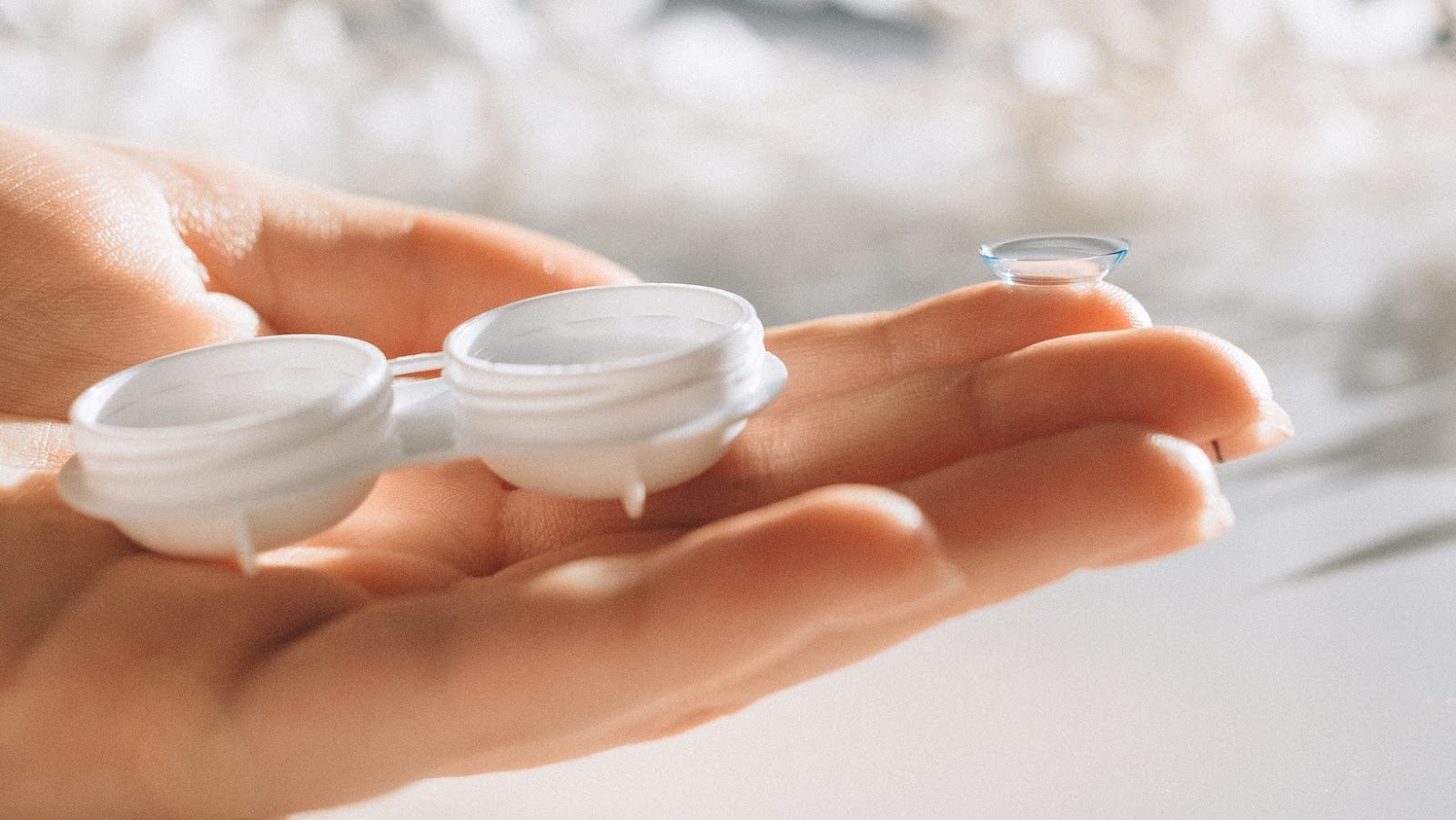Going to the beach is always a fun and exciting experience. Still, it’s important to ensure you are prepared for everything it entails – including protecting your eyes from the harsh sun and salty water. One question that many people have is, “Can I wear contacts to the beach?”
The answer is: yes, you can wear contacts to the beach, but there are a few important things to keep in mind. First and foremost, you’ll want to make sure you are wearing the right type of contacts. There are certain types of contacts that are designed specifically for use in water and can help to prevent irritation and infection.
Additionally, taking proper care of your contacts while at the beach is important. This means avoiding getting sand or other debris in your eyes and taking precautions to keep your lenses clean and moist. With the right preparation and care, wearing contacts to the beach can be a safe and convenient option, allowing you to enjoy the beautiful scenery without worrying about the hassle of glasses.
Table of Contents
ToggleCan I Wear Contacts to The Beach
As someone who wears contacts daily, I understand the struggle of deciding whether or not to wear them to the beach. While they provide a clear vision, there are several factors one should consider before making a decision. Here are some pros and cons of wearing contacts to the beach:
Pros:
– Clear Vision: Wearing contacts can provide better vision for those who need corrective eyewear. With contacts, you won’t have to worry about prescription sunglasses slipping off or getting lost in the waves.
– Comfort: Some individuals find contacts more comfortable for beach activities such as swimming and surfing, as they don’t slide down the nose or cause irritation like glasses often do.
– Better Aesthetics: Contacts don’t obstruct your face and provide better aesthetics in pictures. You can show off your natural beauty without worrying about reflections or glare from glasses.

Cons:
– Risk of Infection: The sand and salty water at the beach can carry bacteria that may infect your eyes. Wearing contacts increases the risk of getting an infection, especially if you don’t clean and sterilize them before and after use.
– Dryness and Irritation: The sea breeze and salt in the air can dry out your eyes, causing discomfort or irritation when wearing contacts. Additionally, the sunscreen and sweat on your face can enter your eyes and cause further irritation.
– Loss of Contacts: The strong waves and rough surf make it easy for contacts to fall out. Unlike glasses, you won’t be able to see them if they do fall out, and they may be lost forever.
As you can see, there are pros and cons to wearing contacts to the beach. It ultimately comes down to personal preference and your comfort level. If you choose to wear contacts, follow proper cleaning and hygiene practices to reduce the risk of infection. And don’t forget to pack a spare pair of contacts and glasses, just in case!
Tips for Wearing Contacts at the Beach
If you’re planning on hitting the beach this summer, you may wonder if you can wear contact lenses while swimming and soaking up the sun. The answer is yes, you can wear contacts to the beach – but there are a few things you need to keep in mind to stay safe and comfortable.
1. Wear Waterproof Contacts
You don’t want to risk losing your contacts in the ocean or a pool, so wear waterproof lenses. These contacts are designed to be more water-resistant and less likely to pop out of your eyes. Disposable daily contacts can also be a great option for the beach, as you can simply throw them away at the end of the day.
2. Use Sunglasses
Wearing sunglasses can help protect your eyes from the sun’s harmful UV rays and reduce glare on the water. This can also help prevent your eyes from becoming dry or irritated by the salty sea air. Just choose a pair that fits comfortably over your contact lenses.
3. Use Eye Drops
The combination of sun, sand, and saltwater can make your eyes feel dry and irritated. Keep a bottle of lubricating eye drops on hand to refresh and hydrate your eyes throughout the day. Just be sure to choose drops that are safe for use with contact lenses.
4. Clean Your Lenses
Before heading out to the beach, ensure your contact lenses are clean and free of debris. This can help prevent irritation and infection while you’re swimming and sunbathing. Use a contact lens solution to clean and disinfect your lenses, and be sure to replace them regularly according to your eye doctor’s instructions.

5. Take Breaks
It’s important to take breaks and rest your eyes throughout the day. Take a break from your contacts and wear your glasses or go without any corrective lenses for a while. Give your eyes a chance to breathe and relax, and you’ll be more comfortable in the long run.
Following these tips, you can wear contact lenses to the beach confidently and comfortably. Remember to take care of your lenses and listen to your body if you feel uncomfortable or irritated. With a little preparation and common sense, you can enjoy the beach and all its beauty without sacrificing your vision.
While wearing contacts to the beach is possible, it can be risky and uncomfortable. Sand, water, and UV rays can all irritate and potentially harm your eyes. If you want to avoid the risks of wearing contacts to the beach, there are several alternatives to consider:
1. Prescription swim goggles – if you need to wear prescription lenses, consider investing in swim goggles that can be customized with your prescription. This will allow you to see underwater without the risk of losing a contact or getting sand in your eyes.
2. Daily disposable contact lenses – if you must wear contacts to the beach, consider using daily disposable lenses. This way, you can toss them at the end of the day and reduce the risk of infection caused by sand and bacteria.
3. Prescription sunglasses – if you don’t need prescription lenses for distance, wearing prescription sunglasses can help protect your eyes from harmful





